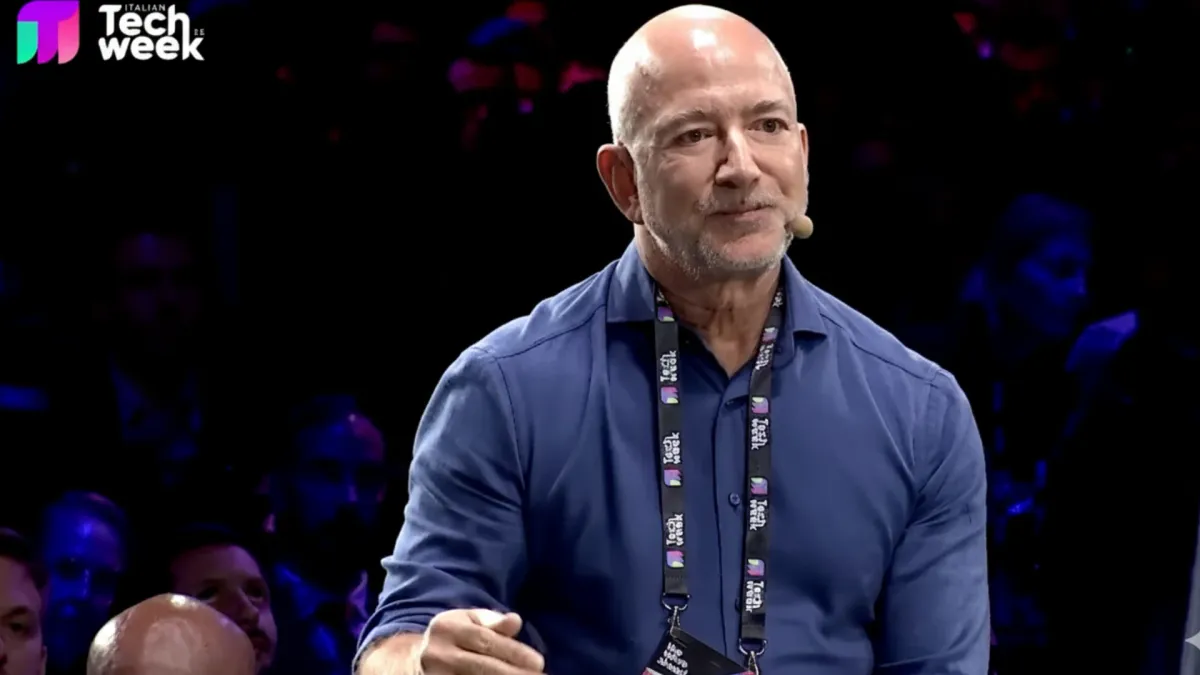Jeff Bezos on AI: An "Industrial Bubble" with Gigantic Potential
Jeff Bezos, the founder of Amazon, addressed the current surge in artificial intelligence (AI) investment, characterizing it as an "industrial bubble" during a conversation with Stellantis chairman John Elkann at Italian Tech Week 2025 in Turin. While acknowledging the similarities to previous technology bubbles like the dot-com era, Bezos emphasized the potentially "gigantic" benefits AI could bring to society.
AI as an Industrial Bubble
Bezos drew comparisons between the current AI investment boom and the internet bubble of 2000. He noted that during such periods, market valuations often become disconnected from underlying business fundamentals. This means that even companies with questionable ideas receive substantial funding, making it difficult for investors to distinguish between worthwhile and unsustainable ventures. Meta CEO Mark Zuckerberg and OpenAI CEO Sam Altman have expressed similar concerns, acknowledging the possibility of an AI bubble.
However, Bezos differentiated between "industrial bubbles" and financial bubbles. He argued that industrial bubbles, such as the biotech boom of the 1990s, can ultimately benefit society even if many companies fail. This is because these bubbles often lead to significant technological advancements, such as life-saving drugs. He believes the same will be true for AI, despite the potential for investor losses.
The Transformative Potential of AI
Despite acknowledging the bubble-like dynamics, Bezos stressed that AI is a real and transformative technology with the potential to revolutionize every industry. He pointed out that the biggest impact of AI won't be limited to AI-first companies like OpenAI and Anthropic but will extend to every company in the world, enhancing quality and productivity. He offered examples from manufacturing to hotels, anticipating AI-driven improvements across all sectors.
“AI is real. And it is going to change every industry… it is going to affect every company in the world.” - Jeff Bezos
Lessons from the Internet Bubble
Bezos also reflected on Amazon's experience during the internet bubble. He recounted how the company's stock price plummeted from $113 to $6 per share even as its fundamental business metrics continued to improve. This experience highlighted the importance of focusing on underlying business fundamentals rather than market valuations. He also noted how infrastructure investments during the internet bubble, such as fiber optic cables, proved beneficial even though many of the companies that laid them went bankrupt.
Advice for Entrepreneurs
Bezos offered advice for entrepreneurs navigating the current landscape. He recommended gaining experience at established companies before starting their own ventures. He cited his own experience at De Shaw as beneficial, and emphasized the importance of focusing on customer needs and building a "heavy" company that can withstand market fluctuations. He said that the best entrepreneurs should be “stubborn on the vision and flexible on the details." He also cautioned about the danger of releasing too many ideas at once, stating that it is important to release ideas at a rate the organization can handle and be ready for them.
Blue Origin and the Future of Space
The conversation also touched on Bezos's current focus on Blue Origin and its developments in space travel. He announced the upcoming launch of the New Glenn vehicle with NASA's Escapade satellite and discussed the company's lunar lander project and efforts to develop hydrogen-powered propulsion systems. He described a vision of millions of people living in space within decades and the utilization of lunar resources.
| Key Event | Date |
|---|---|
| Bezos compares AI investment to the internet bubble | October 1, 2025 |
| Blue Origin scheduled to launch New Glenn vehicle | Late October/Early November 2025 |
| Meta announces hundreds of billions in AI infrastructure spending | July 2025 |
In conclusion, while acknowledging the current AI investment boom as an "industrial bubble," Jeff Bezos remains optimistic about the technology's potential to deliver "gigantic" benefits to society, emphasizing the importance of focusing on fundamental business principles and long-term vision.
 Visit the website
Visit the website







